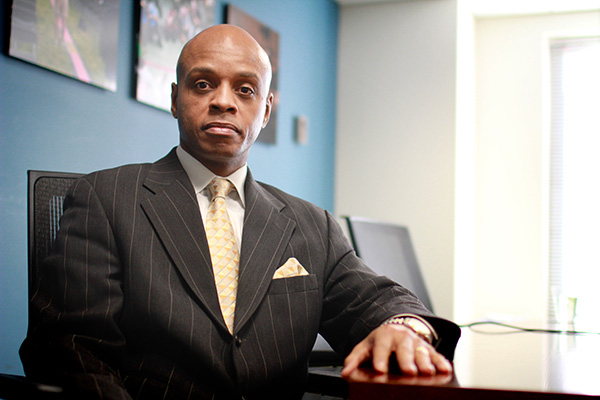University officials from across the District gathered Thursday to work on a coordinated response to campus sexual violence, including sexual assault, domestic violence and stalking.
The D.C. Coalition Against Domestic Violence hosted a panel of university leaders and a domestic violence specialist to discuss policies designed to prevent sexual violence on campuses throughout the District. Representatives from Georgetown, Gallaudet, Howard and American universities and the advocacy group End Rape on Campus exchanged ideas on how universities can build a supportive community for survivors.
The panelists at the event, which was sponsored by Ward 6 Council member Charles Allen, said a one-size-fits-all approach does not effectively assist sexual assault survivors because every survivor needs different assistance depending on the situation. Leaders said universities should make sure survivors recognize that they are not alone.
Title IX Coordinator Rory Muhammad also attended the meeting.
Maya Vizvary, the sexual assault prevention coordinator at American University, said coordination between universities can alleviate survivors’ stress when reporting an incident. It’s difficult and traumatizing for survivors to maneuver through a complicated web of offices, counselors and legal and medical jargon, she said.
“The point of all of our collaboration is to really reduce the burden of system navigation,” she said.
Tricia Bent-Goodley, the founder and former director of the interpersonal violence prevention program at Howard University, said while building a supportive campus environment is complicated work, universities should take steps to organize across departments to improve campus culture surrounding assault.
“If you build it, they will come,” Bent-Goodley, a professor of social work, said, alluding to the film, “Field of Dreams.”
Despite controversial new Title IX guidelines put in place last week by Education Secretary Betsy DeVos, university officials said they were more focused on protecting legislation already in place like the Violence Against Women Act and the Clery Act. GW has committed to continuing one major aspect of Obama-era sexual violence policies.
Annie Clark, the executive director and co-founder of End Rape on Campus, said universities nationwide are fixating on following laws rather than supporting survivors.
“A lot of administrations are overly focused on not getting sued rather than committing to their students,” she said.
She said because sexual violence often involves elements of racial and disability discrimination, universities need to reach out to diversity departments when combating interpersonal violence.
“A lot of state statutes are very unfriendly to anyone who is not a cisgender, heterosexual woman assaulted by a man, and so we’ve got a lot of archaic statues in this country,” Clark said.





